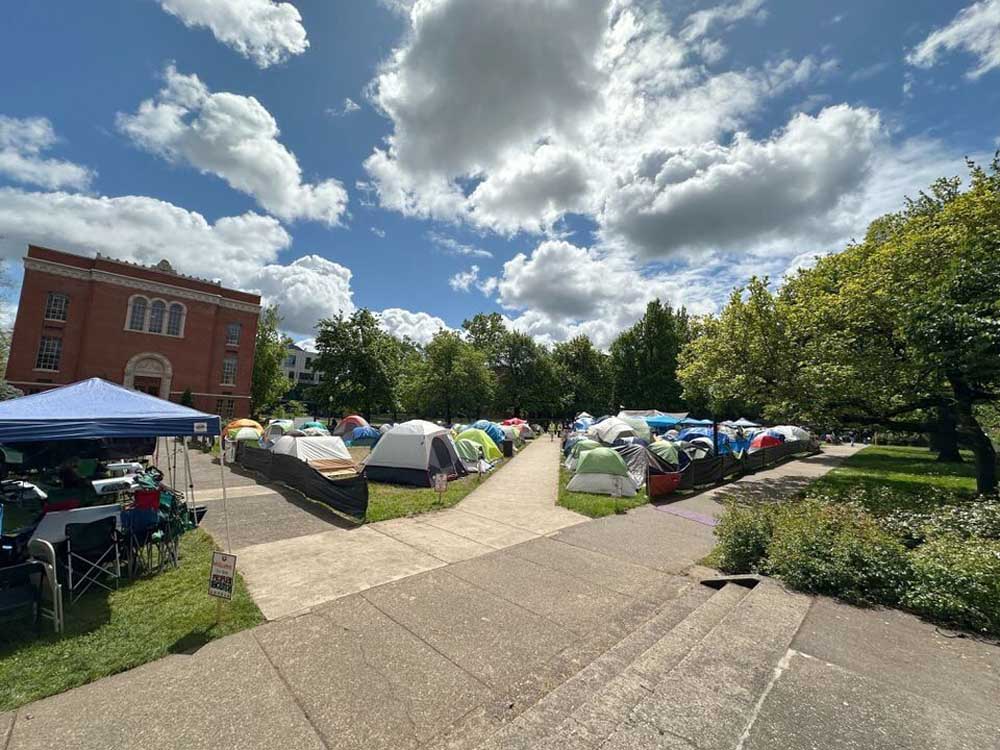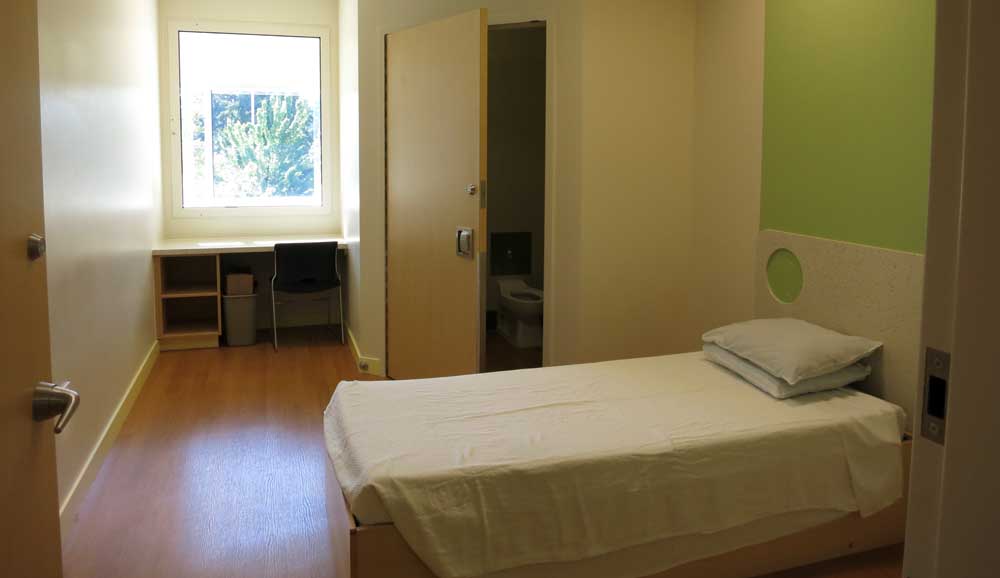Pro-Palestinian protest at UO stretches into second week
Published 2:20 pm Tuesday, May 7, 2024

- A group of pro-Palestinian protesters gather at an encampment in front of the Knight Library on the University of Oregon campus.
Officials at the University of Oregon say they are negotiating with the leaders of a pro-Palestinian student encampment that has grown to about 140 tents over the last week, in hopes of reaching a peaceful resolution.
But students and university leaders are still far apart, according to some faculty observers. And in a Sunday email to students and their families, the university pointedly noted that the encampment in front of the Knight Library is “unauthorized” and said that protesters have been advised that they are in violation of university policies.
The Daily Emerald, the university’s student newspaper, reported late Monday that protesters have been told that those who don’t leave the encampment by Tuesday at noon will no longer be eligible for “academic amnesty” and could face other disciplinary consequences. University spokesperson Angela Seydel would not confirm any details about negotiations to end the encampment.
University President John Karl Scholz has made it clear that he will not agree to protesters’ demands that he explore divestment from and a boycott of a host of companies that have business interests with Israel, a strategy that has led to agreements at a handful of universities, including Brown, Rutgers and Evergreen State College.
“Boycotts could allow any single viewpoint to unilaterally limit scholarly collaboration and understanding across countries, limit research cooperation and industry partnership [and] limit the ability of students to pursue study,” Scholz told the faculty senate last week. “Divestments, like academic boycotts, run counter to our obligations to our students, our state and to some degree, our country.”
A rally with about 120 demonstrators took place Tuesday and ended around 12:30 p.m., the Daily Emerald reported.
Students protesters, via social media, have called a boycott, divestment and sanctions approach the “bare minimum asks of the University to show their good faith in working with us.”
Seydel said the school had received reports from students and some faculty that other professors and instructors were holding classes or office hours at the encampment, prompting a warning to faculty that went out over the weekend. In a follow-up email to students and parents, Kris Winter, the school’s interim vice president for student life wrote, “no student should be encouraged or compelled by UO employees to be exposed to the protest or encampment.”
But Joseph Lowndes, the chair of the political science department, questioned how widespread that practice actually was. He said he had gone down to the encampment by invitation to give a short talk on the history of student protests and the dangers of antisemitism, he said, adding that he’d seen no sign of anti-Jewish sentiment among protesters, though anti-Israel signage is present.
The next day, he said, he received an email from a dean in the college of social sciences.
“They had heard that I had taught or was going to teach a class in the encampment, and that students were very uncomfortable, that they would be forced to be in what they consider a hostile environment,” Lowndes said. “It was presented like true information, but it was a lie that they had accepted at face value. I am not teaching a class this quarter.”
By Monday afternoon, as first reported by The Daily Emerald, a coalition of groups representing Jewish students released a statement calling on the university to dismantle the encampment, criticizing both the university’s move to close the Knight Library and the student union early for safety reasons during midterms and the decision by some professors to cancel or end classes early.
“We are aware that some students participating in the encampment identify as Jewish, and may feel that the language used by the encampment is not antisemitic,” the statement, signed by Ducks for Israel, Oregon Hillel, Eugene Chabad, and the Jewish Federations of both Portland and Eugene read. “However, many in our community have made clear they feel differently.”
Seydel said it was her understanding that most of those at the encampment are students, which emerged as a point of contention at Portland State University, where demonstrators took over the school’s library last week and caused hundreds of thousands of dollars worth of damages to the library.
Police eventually cleared the library and arrested 31 people, only six of whom were currently enrolled Portland State students. About 50 more students had left the library the previous night after negotiations with PSU President Ann Cudd, while several dozen more streamed out of the library and ran away before police could reach them.







